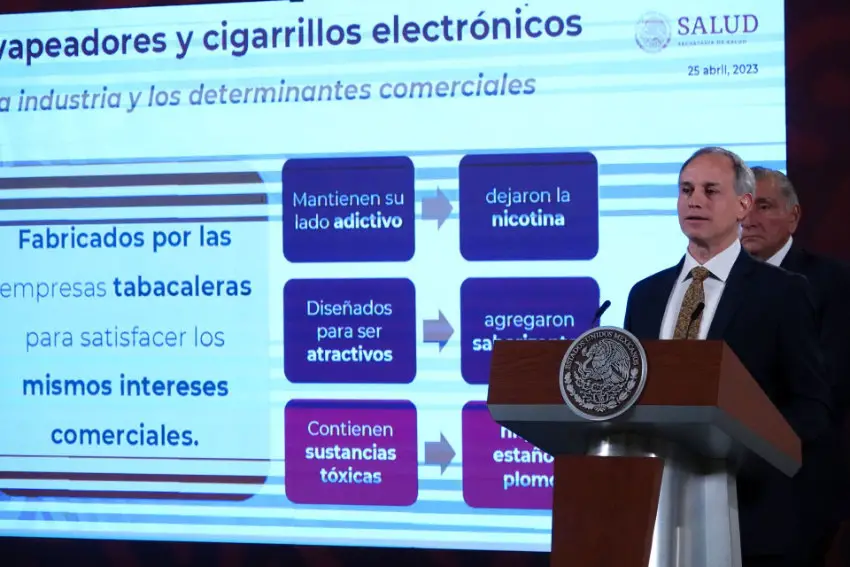Mexico’s lower house of Congress on Tuesday easily approved a constitutional reform to ban e-cigarettes and vaping devices, as well as sanction synthetic drugs such as fentanyl.
The proposal must now pass in the federal Senate to become law.

“The ban on fentanyl and the use of vapes is a significant step that will prevent thousands of cases of respiratory illnesses and lung diseases that have accounted for a significant number of deaths, mainly among young people,” member of Congress Margarita García García said, according to the online news site Infobae.
A reported 1.7 million Mexicans used e-cigarettes and vapes in 2023, while 16.4% of adults in Mexico smoke some form of tobacco.
Arguing that the smoking devices were damaging public health, former Mexican president Andrés Manuel López Obrador instituted a ban on the sale of vaping equipment and e-cigarettes by presidential decree in 2022 – although both continued to be widely available in Mexico. However, he didn’t manage to get a law passed before he left office at the end of September of this year.
President Claudia Sheinbaum confirmed when she took office in October that she would pursue a legislative ban.
The new reform, which passed with 410 votes in favor and 24 against, also sanctions the “production, distribution and sale of toxic substances, chemical precursors [and] the illicit use of fentanyl and other nonauthorized synthetic drugs.”
Although fentanyl is available for medical use, it is otherwise banned in Mexico.

While there was broad support for the reform in Congress, Reuters reported that opposition legislator Éctor Jaime Ramírez said including vaping devices and e-cigarettes in legislation banning synthetic drugs like fentanyl trivialized “the effort being made to combat the most addictive and dangerous drugs.”
Meanwhile, some worry that introducing an outright ban on vapes could encourage the sale of such products on the black market.
“These vapes are brought by organized crime from China, India and even Bangladesh,” journalist Óscar Balderas said, according to the Guardian newspaper. Illegal imports are entirely unregulated, and “the consumer has no idea what they’re putting in their body,” he added.
The legislation now heads to Mexico’s Senate, where the ruling Morena party holds a healthy majority, making it likely — given its easy passage in the Chamber of Deputies — that the ban will become law.
With reports from El País, The Guardian, Reuters, Infobae and Excelsior
